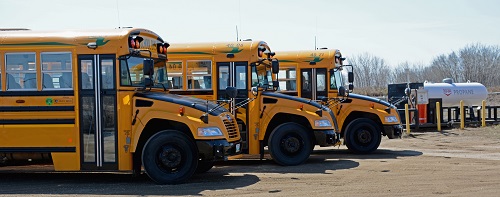
The CPA will be undertaking a life cycle analysis of propane in Q1 2022 to bolster its advocacy in the Clean Fuel Standard (CFS) policy, acknowledging propane as a low-carbon energy source.
The CFS, a federal regulation requiring a carbon content reduction in domestically used liquid fuels, will require liquid fuel suppliers to gradually reduce the carbon intensity (CI) of the fuels they produce and sell for use in Canada up to 13% (below 2016 levels) by 2030. 
The CPA has been engaging with the federal government on the CFS policy and its impacts on the propane industry. The Association has also advocated for an accurate carbon intensity for propane, appropriate offsets/crediting opportunities, and an equal playing field for all fuels.
The CPA will share the results of this life cycle analysis with members upon its completion through a webinar, which will explain the methodology used to achieve the CI number as well as ways to use this data. In addition, the CPA will share this data with the government to ensure that it understands the true lifecycle of propane.
The government expects that, over time, the CFS will drive consumer choice towards low-carbon energy sources for transportation fuel (such as biofuel and electricity) by decreasing their price while increasing the pricing of liquid fossil fuels.
B.C. is the only province that currently applies CI reduction requirements to its producers and importers. B.C.’s Low Carbon Fuel Standards set reduction requirements that target a 20% reduction in CI by 2030, 8% higher than the proposed CFS’s target.
Final regulations for the CFS will be published in late 2021, with the implementation of the regulatory requirement in December 2022. Click here for more information on the Clean Fuel Standard.